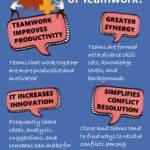
The Game of a Number and an Action
A Number and Action is a fast-paced, highly interactive game that generates a lot of energy and stimulates quick thinking in large groups.
Form pairs and ask the taller person of each pair to separate from their partner and form one large circle facing out. Invite their partners to face them forming a new concentric circle facing in.
Your ultimate goal is to end up with two concentric circles, one circle of people facing out and the other facing in towards the first. It’s a good idea to share this vision with your group beforehand, so they can understand what’s expected of them.
Announce that you will soon call out a series of numbers, 1 through 5. Explain that each number represents a particular action that they are to perform as accurately and as fast as possible, most of the time involving the person standing in front of them.
For example:
- Perform a High 10 with your partner, using the backs of your hands.
- Switch places with your partner (inside to outside circle and vice-versa.)
- Each person steps two spaces (people) to their left.
- Spin full 360 degrees on the spot & finish facing one another.
- Perform a High 5 with left hand and Low 5 with right hand.
Practice each of these commands several times, starting with the first two or three commands before eventually introducing all five. Go slowly, and allow ample time for your group to build their speed and accuracy.
When ready, start announcing a series of up to six of seven numbers in quick succession, eg 2, 4, 5, 2, 1, 4. Each person’s goal is to respond as quickly and accurately as possible.
As your group gains familiarity and competence with the commands, extend the series up to 20 numbers in succession before taking a short break and starting a new round. Continue playing for up to 20 minutes or until your group is exhausted.
Moment of Reflection
- Were you more successful the more you practised?
- When you made a mistake, what did you say to yourself?
- What did you observe from the group when a mistake was made?
- Considering your expectations in the beginning of the game, id you surprise yourself?
- Generally speaking, what happens when we don’t meet expectations? Is there anything we can do – more often than not – to meet expectations?
The topics of this publication: integration, interactions, disinhibition, distension, active listening, motivation, energize


